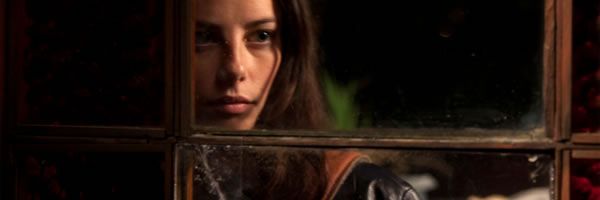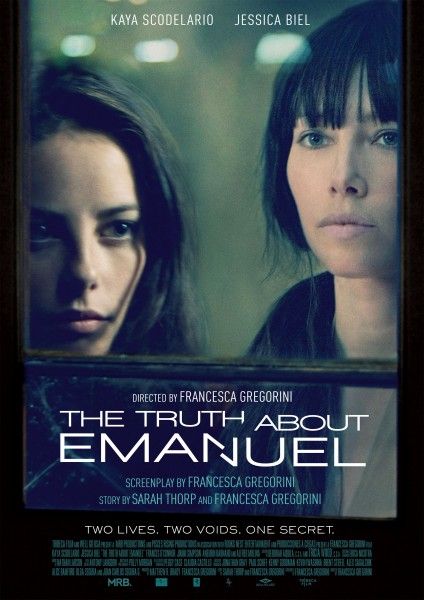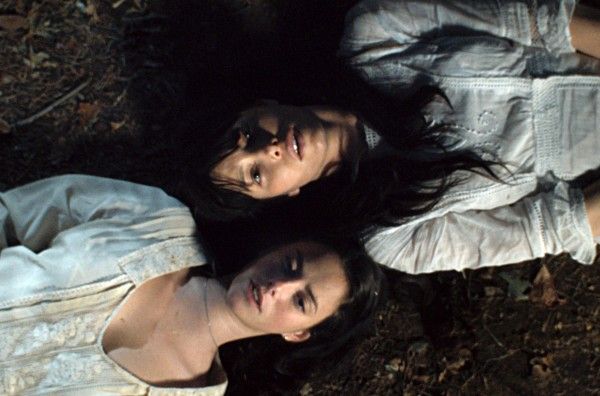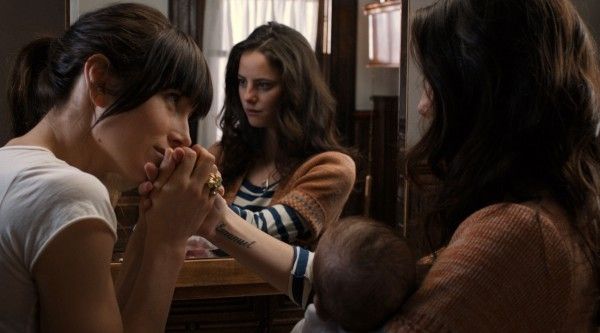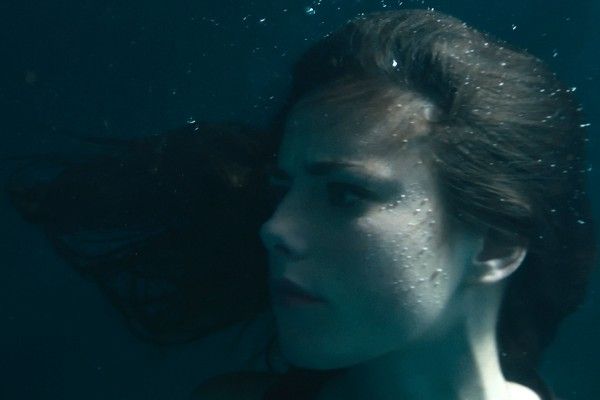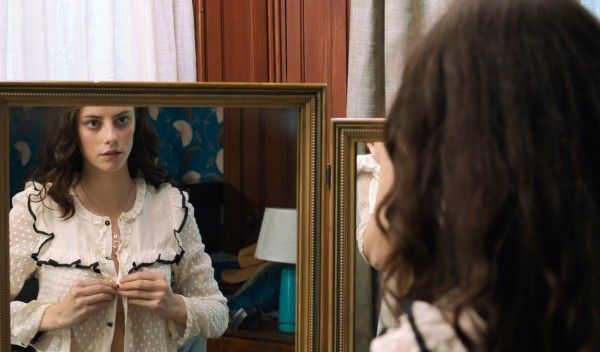From writer/director Francesca Gregorini, the indie drama The Truth About Emanuel tells the story of the troubled Emanuel (Kaya Scodelario), who becomes preoccupied with her mysterious new neighbor, Linda (Jessica Biel). In offering to babysit her newborn, Emanuel unwittingly enters a world that blurs the line of fantasy and reality, and shows just how dangerous secrets can be.
During this exclusive phone interview with Collider, actress Kaya Scodelario talked about what attracted her to this project, how she got the role in spite of a very bad audition, why she identified with the character so easily, how she spent a lot of time working on the American accent, how great it was to collaborate with Francesca Gregorini, what it was like to shoot the underwater sequence, and working with co-star Jessica Biel. She also talked about what made her want to be a part of The Maze Runner, adapted from the Young Adult novel of the same name, being the only girl working with a group of guys, and how much work she put into the physical side of the role, along with what being a part of the hit British TV series Skins has meant to her. Check out what she had to say after the jump.
How did you come to this project? Was this a role that you had to audition for?
KAYA SCODELARIO: The script was sent to my agency, and lots of people read it. The second I read it, I just thought it was beautiful and so well written for a woman and so interesting. It had this crazy element of fantasy in it, and reality. I fell in love with it, straight away. So, I did an audition, which was a very bad audition, that we sent over to America. I was so nervous that it was absolutely awful, and I’m not very good at auditioning. And then, Francesca [Gregorini] was in London and she wanted to meet some of the actresses, so I got the opportunity to meet her. We just had a conversation where we talked about our lives growing up, and how we felt about certain things in the storylines, and our own personal journeys. We just completely connected. We understood each other, and we understood the characters, straight away. Luckily, she gave me a chance.
In what ways did you find yourself identifying with Emanuel, and what did you see as the biggest challenges in tackling her?
SCODELARIO: I think it was quite easy to identify with her. She’s a young woman who’s at this point where she’s supposed to know what she wants and what she’s going to do with the rest of her life, but she doesn’t. She’s just floating through life. And I think we all get to that point. We all feel that pressure to get ourselves worked out and know where we’re heading, but maybe we don’t and we have guilt about that. I was certainly feeling that. I was feeling like I wasn’t sure about myself. I could really relate to that. And the relationships she has with the people around her, and the need to protect people, if you break it down, it is quite simple and it is something I know I’ve definitely been through.
You’re in pretty much every scene of this film, and you’re working in an accent that’s not your own. Did the accent come easily for you, or did you spend a lot of time working on it, so that it could just be second nature?
SCODELARIO: I did spend a lot of time working on it because it was something I was very nervous about. I didn’t want to do a god awful job. I really wanted to try to focus on it. But, it was scary. I’ve never been one of those people who can just do accents, so I was really worried about it. Aneurin [Barnard], who plays Claude, is Welsh, and it was his first time doing an American accent, as well. So, we had each other to rely on, and we worked with a great dialect coach. She just explained it to us, technically, and it became really relatable and understandable, once you start thinking about the shape of your mouth and where your tongue lies. My mom is Brazilian, so I speak Portugese. I think my mouth is used to making more shapes than the British accent. So, once you really focus on it, it’s not too difficult. It’s just scary.
Did you stay in the accent, throughout the shoot, or did you just go in and out of it?
SCODELARIO: I went in and out. Personally, for me, you’re on a set with a certain amount of people for however long, and I like being able to connect with them all. I liked being able to have a conversation with them, and take myself out of what could sometimes be really depressing shooting days. There were days where I was just crying from the morning until the night. I like to come out of it, in between takes. I can’t stay there constantly.
Did you ever catch yourself slipping out of the accent, with certain words, or at certain times?
SCODELARIO: Yeah, definitely. We were shooting 13- and 14-hour days, so by the end of the day, when you’re exhausted, your mouth starts getting croaky and tired and lazy. Every now and again, that would happen. But luckily, I was surrounded by Americans who would say, “Say that again. Do that again.”
What was it like to collaborate with Francesca Gregorini on this? Did she give you much feedback or input while you were shooting, or did it feel like you had a real freedom to do your thing while you were on set?
SCODELARIO: She was great, actually. We worked perfectly with each other. She had a lot of trust in me, which is very brave for a director. She’d let me play out the scene how I wanted to play it out, and then we’d discuss it afterwards. She’d give me some notes, or she’d say, “I think we should go in this direction.” We’d discuss it, and I’d say, “Yep, you’re totally right. That feels much better.” We had a lot of trust in each other, creatively and professionally, so we knew that we would get there, eventually. It did work out, very well.
Because you’re an actor who works more from a place of instinct and less from a place of training, do you feel like that really helps you, in getting into the moment?
SCODELARIO: I think so, yeah. But, you can look at it from both ways. I feel like there are a lot of people who still don’t accept that, and who want the trained actors, especially with the British industry because we have such a big theater culture and so many world-renowned drama schools. When I first started out, it was very, very difficult to even get in the room with directors or casting directors because they would see that I hadn’t been to drama school and wouldn’t want to see me. Now, I feel like it’s changing. We have this new generation of a lot of writers, directors and actors who are just breaking through, and they’re doing it for the passion. There’s something interesting about that. It may be slightly different, but it’s still interesting.
This film slips from reality to fantasy throughout it. Was it important to you to keep those lines blurred? Did you play the fantasy elements as though they were real?
SCODELARIO: For me, it was such a strange shoot. It was the first time I had been away from home for such a long time. I was in a really weird city. Los Angeles is a very strange place. I didn’t drive. I was very segregated out there. So for me, it was quite easy to blur those lines because it did feel like I was in this strange fantasy. A lot of times, it didn’t feel quite real. It felt different and unknown and scary. So, I tried to use that, as much as possible. I wanted her to believe everything that was going on around her, but I think Emanuel’s core is still very strong. I think she’s aware, but sometimes she makes the decision to hold that back, for the sake of others. So, I tried to approach it, in that way.
What was the underwater sequence like to shoot?
SCODELARIO: It was amazing! It was a lot of fun. We shot in a 20-foot tank in Long Beach. We built the whole bedroom set, put it on a crane, lifted it above the tank, and then slowly submerged it into the water and just played the scene out, over and over and over again, until we were fully submerged underneath. It was amazing! I got to learn to scuba dive and use a respirator and hand signals, and all these little things I never thought I’d get to do. I think it looks amazing. It’s my favorite part of the film, so I’m glad that we really did it and that there wasn’t CGI, or anything like that. We spent two days, making that sequence the best it could be.
The relationship between your character and Jessica Biel’s character is such an interesting, complex and complicated relationship. How was it to work with her?
SCODELARIO: I was really lucky, actually. Before I knew who had been cast, I was quite worried that they’d get a big celebrity who wouldn’t connect with me, or wouldn’t want to speak to me, or who was too busy worrying about what they looked like or what they were wearing. But the second I met Jessica, she was a real person, straight away. There were no airs of grace about her. She’s very professional. She was very focused on this job, and she wanted to make me feel as comfortable as possible, which I thought was amazing of her. She had such a difficult part to play, but she still took the time, in between takes, to talk to me about my life, to reassure me, to answer some of my questions, and to give me some advice. It was the perfect relationship.
You also did The Maze Runner, which is a young adult story that’s geared told a male audience, but you’re pretty much the only female in it. Was that part of the appeal to you? Had you been looking to do a film of that type?
SCODELARIO: Yeah. You’ve always got to try to shake things up and do new and exciting things. I wanted to do an action-y thing, purely because I’m the least fit, healthy person in the world. I wanted to prove to myself that I could actually run and not get out of breath and collapse. I wanted to push myself, in that way. I found it really interesting. It was a huge group of boys, and you don’t really find out much about her. She’s a real mystery in the first film. It’s only in the second and third books that you learn the reason why she’s been put there, what her mission is, and what her story is. I thought it would be really cool to play something that spanned that long, and that was that much of a journey, and that was not an easy character to work out, straight away. It was a wonderful shoot. Most of my best friends are boys, so I was very comfortable around them. I would fart around them and burp, and they’d be freaked out. And then, by the second week, they understood that that was just me, and that girls do burp. We had a lot of fun! I’m really looking forward to seeing what happens with the film.
Did you find that you easily took to the physical aspect of the role, or was it a big challenge for you?
SCODELARIO: I had to put a lot of work into that, but I really wanted to do it. I didn’t want to be the girl in the group that couldn’t do as much as the boys. I’m very competitive like that. I didn’t want them to be able to use the excuse that I was a girl, so I did throw myself into stuff, as much as possible. We had an ex-Army officer training us and talking to us about survival skills, and all those sorts of things. So, I did try to do as much as I could. And by the end of it, I started to enjoy exercise a little bit more. We’ll see what happens. I may have been converted.
Skins was a series that really allowed a lot of young actors to really showcase their talent, and many of the actors have gone on to have great careers. What was the experience like for you? Di you feel like it made you grow, as an actress?
SCODELARIO: It’s so weird, looking back on the Skins days, because I don’t think it was a job to any of us. We were so grateful to be employed. In England, at the moment, it’s very difficult for young people to find a career that they love and to be able to afford to sustain that. We all got lucky. We all had jobs, and we had so much fun. We were in the city together, and it was the first time we were away from home. People fell in love and had fights, and I got drunk for the first time. It was like living out the whole of our youth, in two years. It was just a lot of fun, but we all worked hard. It was the perfect balance. And then, when we’d see Dev Patel doing well or Nick Hoult doing well, we’d suddenly be like, “Oh, we can do that, too. You don’t have to necessarily go down the drama school route, or have connections in the industry. You can just make it.” So, it really pushed us all. And we’ve all remained friends, until now. The first series was seven years ago now, and we’re all best friends still.
The Truth About Emanuel opens in theaters on January 10th.

